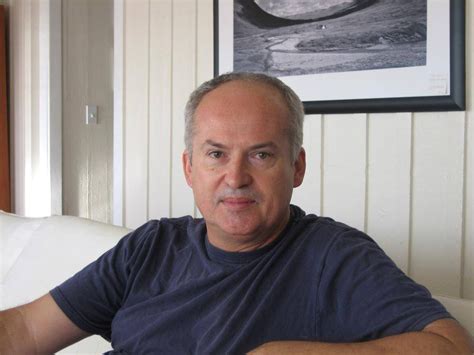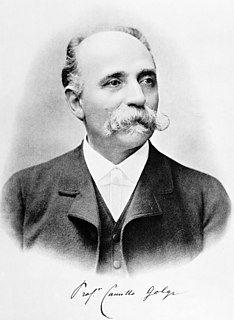A Quote by Antonio Damasio
So, you can define emotions very simply as the process of perceiving what is going on in the organs when you are in the throws of an emotion, and that is achieved by a collection of structures, some of which are in the brain stem, and some of which are in the cerebral cortex, namely the insular cortex, which I like to mention not because I think it's the most important, it's not.
Related Quotes
We live in the Age of the Higher Brain, the cerebral cortex that has grown enormously over the last few millennia, overshadowing the ancient, instinctive lower brain. The cortex is often called the new brain, yet the old brain held sway in humans for millions of years, as it does today in most living things. The old brain can't conjure up ideas or read. But it does possess the power to feel and, above all, to be. It was the old brain that caused our forebears to sense the closeness of a mysterious presence everywhere in Nature.
We are part of nature, a product of a long evolutionary journey. To some degree, we carry the ancient oceans in our blood. … Our brains and nervous systems did not suddenly spring into existence without long antecedents in natural history. That which we most prize as integral to our humanity - our extraordinary capacity to think on complex conceptual levels - can be traced back to the nerve network of primitive invertebrates, the ganglia of a mollusk, the spinal cord of a fish, the brain of an amphibian, and the cerebral cortex of a primate.
How do we regulate our emotions? The answer is surprisingly simple: by thinking about them. The prefrontal cortex allows each of us to contemplate his or her own mind, a talent psychologists call metacognition. We know when we are angry; every emotional state comes with self-awareness attached, so that an individual can try to figure out why he's feeling what he's feeling. If the particular feeling makes no sense—if the amygdala is simply responding to a loss frame, for example—then it can be discounted. The prefrontal cortex can deliberately choose to ignore the emotional brain.
What we're trying to do in conversational intelligence is not only define that trust continuum for people, not only helping them notice, which is so important, what's happening in them and others when distrust lives, but also how to bring people in trust. When they do, what happens, this part of our brain, the prefrontal cortex is loaded with wisdom, integrity, strategy, insights, empathy, foresight. It's beautiful. It's so designed for that, and often it's turned off because people don't have trust with each other.
There is one brain organ that is optimised for understanding and articulating logical processes and that is the outer layer of the brain, called the cerebral cortex. Unlike the rest of the brain, this relatively recent evolutionary development is rather flat, only about 0.32 cm (0.12 in) thick and includes a mere 6 million neurons. This elaborately folded organ provides us with what little competence we do possess for understanding what we do and who we do it.
For the first time in longer than I can remember, I feel peaceful. Not happy. Not sad. Not anxious. Not horny. Just all the higher parts of my brain closing up shop. The cerebral cortex. The cerebellum. That's where my problem is. I'm now simplifying myself. Somewhere balanced in the perfect middle between happiness and sadness. Because sponges never have a bad day.
Let me tell you, though: being the smartest boy in the world wasn’t easy. I didn’t ask for this. I didn’t want this. On the contrary, it was a huge burden. First, there was the task of keeping my brain perfectly protected. My cerebral cortex was a national treasure, a masterpiece of the Sistine Chapel of brains. This was not something that could be treated frivolously. If I could have locked it in a safe, I would have. Instead, I became obsessed with brain damage.
If we think about emotion this way - as outside-in, not inside out - it is possible to understand how some people can have an enormous amount of influence over others. Some of us, after all, are very good at expressiing emotions and feelings, which means that we are far more emotionally contagious than the rest of us.
I am delighted that I have found a new reaction to demonstrate even to the blind the structure of the interstitial stroma of the cerebral cortex. I let the silver nitrate react with pieces of brain hardened in potassium dichromate. I have already obtained magnificent results and hope to do even better in the future.
Every man is prompted by the love of himself to imagine that he possesses some qualities, superior, either in kind or degree, to those which he sees allotted to the rest of the world; and, whatever apparent disadvantages he may suffer in the comparison with others, he has some invisible distinctions, some latent reserve of excellence, which he throws into the balance, and by which he generally fancies that it is turned in his favour.


































